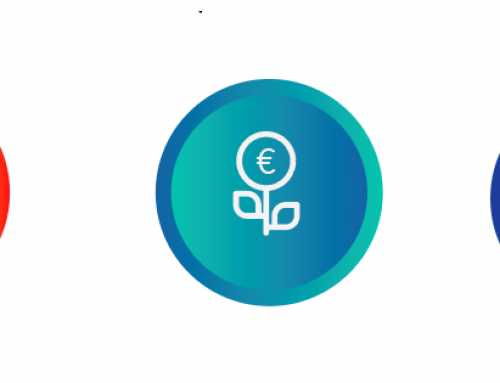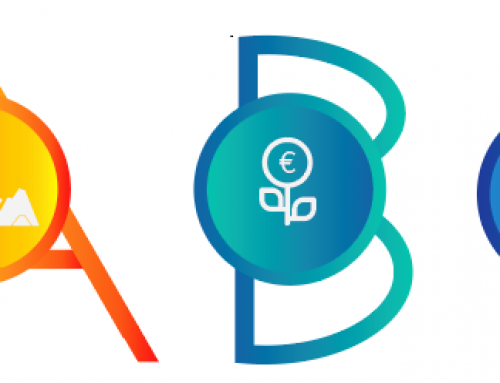From accountant to financial management controller – five tips on how to put change into practice
Many accounting firms already offer their customers valuable additional financial management services. This is possible thanks to digitalisation and artificial intelligence, when the time spent producing accounting data is freed up for the interpretation of data. For the personnel, the new service takeover offers meaningful career prospects and deepening expertise. In particular, the majority of KLT accountants would already have the necessary expertise in the financial controller services of micro and SMEs.
However, despite its potential, starting a new service can be slow. The most common problems when starting controller services are lack of time and courage, as well as lack of tools. In our first blog, I'll tell you what kind of mindset and tools you can use to get through it as easily as possible.
Prepare for change by making a plan.
Menesthion comes before planning and work only in an enassory book. Ray Dalio, founder of Bridgewater Associates, one of the world's largest funds, has listed five simple steppes to achieve the goals. They are ideal for preparing any new business or service.
As a first step, Dalio has listed that the objectives must be clearly defined. Secondly, he emphasises that problems that prevent the achievement of objectives must be taken into account and listed and not tolerated. Third, Dalio advises diagnosing problems accurately. This will bring out the root causes of the problems and, with the correction, the problems will not be repeated in the future. The fourth step is to make a clear plan to achieve the goal and, as the last fifth step, to put the plan into practice.
- Set a clear goal
- Identify problems
- Diagnose problems and root causes
- Make a clear plan
- Implement plan
What time to spar with controller-type activity?
As I mentioned at the beginning, the most typical problems in starting controller services are related to lack of time and daring, as well as lack of tools. When diagnosing the root cause of the lack of time, it turns out that, in most cases, the workload of an accountant has simply become too high in the area of statutory accounting, despite automation. The only way to remedy this problem is to arrange time for the accountant to develop and share his/her own expertise. In most cases, arranging time is the most challenging part of the whole process.
In turn, it is easier to fix the problems of daring. Motivation and planning are the best promoters of daring. With credibly set goals clear in your mind and supported by a plan that is accurate enough, you're already further along than most people are. Daring also feeds on itself: through experience you become, as if unnoticed, an even more confident expert in financial management.
One of the main de-insecurities removers is reliable and hand-appropriate tools. If your tools for providing added value to your customer are too difficult to use, too expensive or unprofitable, your service will remain unprofitable. Worst-case scenario, you won't get beyond the beginning when choosing the wrong tools gives you a surreal picture of your chances.
The arc of development is comparable to riding a bicycle. First you ride the auxiliary bikes, then without the auxiliary bikes, and at a certain point after practicing enough, you can also teach others how to drive. If you don't like a bicycle, driving may be minimal, and the ability to drive will not develop.
Do what you do best
The company must be an expert in its industry, service and product areas. Accounting firms specialize in financial management and financial management. One of the basic pillars of a successful company is functioning financial management. It creates the conditions for understanding the state of the business based on the income statement, balance sheet, key figures and cash flow statement. These, on the other hand, enable sustainable business planning.
Another key element is high-quality economic management, which enables decision-making on the basis of realistic budgetary, investment and financing scenarios. In view of the limited resources of micro- and SMEs and the theory of relative benefits, it is natural that the financial management of these enterprises and at least part of financial management should be outsourced to accounting firms.
With careful business development, you ensure that all your customers receive the best possible service and can focus on their essential business, i.e. their own business.
Here are five practical tips for achieving the accountant-to-financial controller transformation goal in practice.
- Make a clear change plan
- Take the time to discuss financial management and training to make it a natural part of the operation
- Make sure that the software used for financial controller functions is easy to use, informative and cost-effective to make its use a pleasant and natural part of day-to-day operations
- Make sure that the software provider trains the necessary people to use the program. This provides an opportunity for feelings of success and motivation
- Deepen expertise in economic planning, financing and budgeting one step at a time
Finadeck's smart, drill-down and customizable Accounting Firm Dashboard is designed to make accounting firms easier to monitor the financial situation of customer companies and financial consulting.
Finadeck's intelligent FINANCIAL Management and Reporting software for companies is designed to facilitate companies in budgeting, investment planning, analysis of key figures and cash flow, and – visual reporting, industry and competitor comparison, valuation and financial application.



